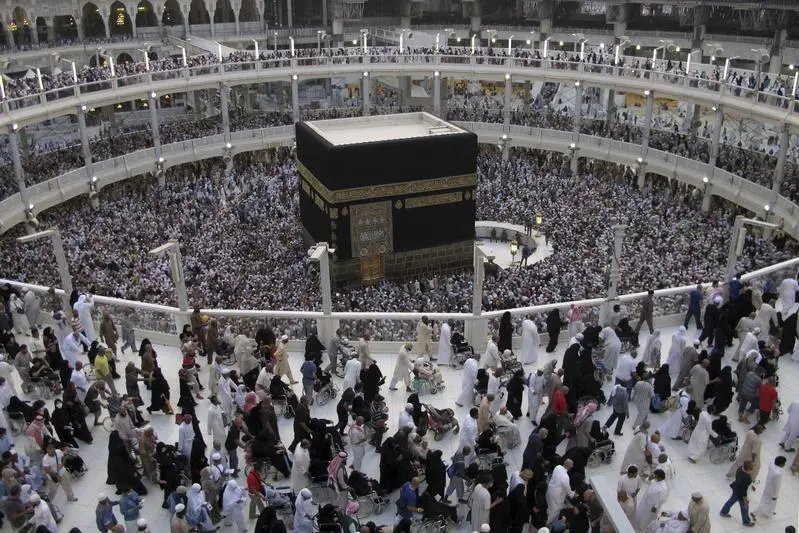PHOTO
Around one million Muslim pilgrims gathered at sunrise on Friday at Saudi Arabia's Mount Arafat for a vigil to atone their sins and to pray for peace back home as the annual haj pilgrimage neared its climax.
Pilgrims clad in white robes climbed the rocky Mount of Mercy, which oversees the plain of Arafat where the Prophet Mohammad held his last sermon. Under the burning desert sun, many sought whatever natural shade they could or sheltered under parasols.
"I feel very happy, it is strange feeling with a spiritual atmosphere. It is very good spiritual atmosphere indeed," said Tunisian pilgrim Afif Ghanmi, 58.
"I ask God for good health, safety and stability in all countries and Muslim nations. For my country Tunisia, God willing, it will get better economically, socially and politically," Ghanmi said.
Pilgrims will stay until sunset before moving to Muzdalifa plain where they will gather pebbles to throw at stone columns symbolising the devil. The ritual stoning, known as Jamarat, marks the first day of Eid al-Adha, or the feast of sacrifice, which will be celebrated by Muslims across the globe on Saturday.
Saudi Arabia has said up to one million pilgrims, mostly from abroad, will attend the haj season this year after two years of disruption caused by the COVID-19 pandemic during which the authorities allowed only Saudi residents to perform haj.
In 2019, the last season before the pandemic, some 2.6 million pilgrims visited Islam's two holiest sites in Mecca and Medina, and some 19 million attended umrah, a minor pilgrimage that can be performed at any time throughout the year.
Hani Jokhdar, an official at the Saudi health ministry, said authorities were using a monitoring system to watch for the spread of infectious diseases in order to anticipate any early health warning and carry out rapid intervention and support.
Security officers roamed among pilgrims as concrete walls topped with metallic bares protected restricted areas in the foothill of the Mercy Mount. Pilgrims, wearing government-issued wristbands with personal data barcodes, prayed with their arms held up towards the sky.
Others snapped selfies.
"Praise be God, our Lord, who made us perform haj after years of trying," said Farhana Amin, an Egyptian pilgrim.
"I couldn't even dream of this."
(Reporting by Soha Gado, Mustafa Abu Ghaneyeh and Mohammed Salem, writing Aziz El Yaakoubi, Editing by Raissa Kasolowsky)
Reuters





















